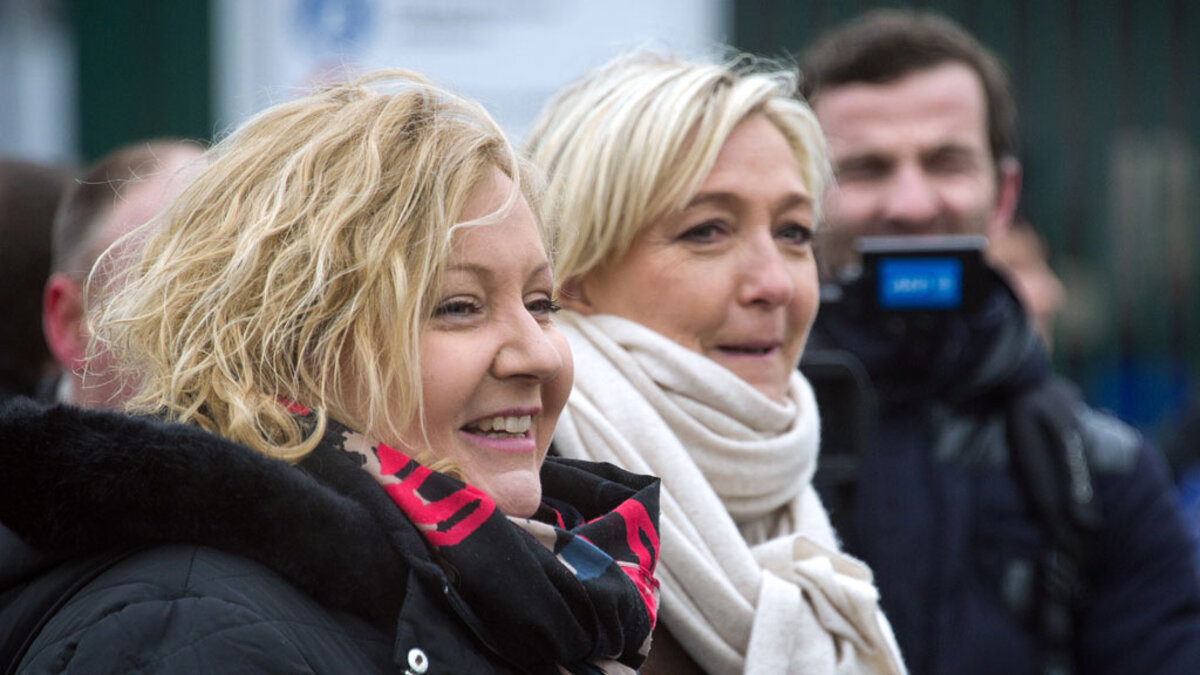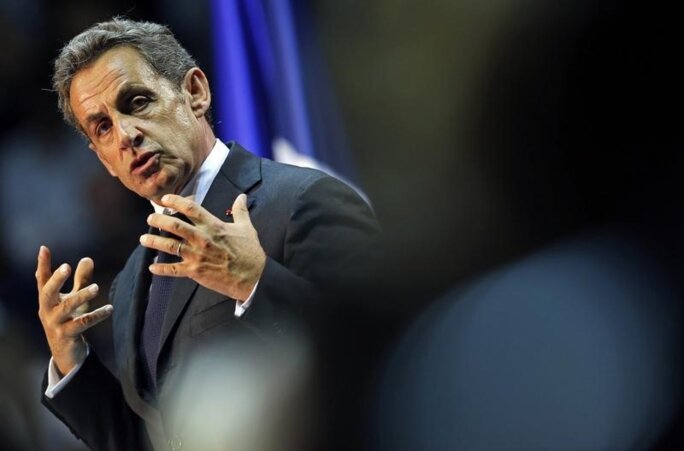“I’m not rejoicing, I’m not exulting, I owe this success to Republican forces,” commented Frédéric Barbier, the Socialist Party candidate who emerged victorious in Sunday’s parliamentary by-election in the Doubs département (equivalent to a county) in eastern France, but which he won by the tightest of margins.
The election was prompted by the recent appointment as European Commissioner for Economic and Financial affairs of the outgoing socialist Member of Parliament for the constituency, former French economy minister Pierre Moscovici. The polling in no way disappointed its billing as a significant litmus test of the national surge in support for the far-right Front National party and, similarly, of the ability of the mainstream parties to resist it.
By “Republican forces”, Barbier was referring to the partial support he garnered from the Right and centre-right, as well as the Greens and wider Left, in the playoff contest on Sunday between himself and the Front National party candidate Sophie Montel. Voting in the first of the by-election’s two rounds on February 1st – when only the top two candidates qualify for the second round - saw Montel take the lead ahead of Barbier, and the elimination of the third-placed conservative UMP party candidate.

Enlargement : Illustration 1

Last week, the executive committee of the UMP, which is headed by former French president Nicolas Sarkozy, officially opted to advise its electorate to vote neither for the far-right nor the socialists by either abstaining or placing a blank vote in the urns. Meanwhile, several of the party’s high-profile figures, notably former French prime minister Alain Juppé and former minister Nathalie Kosciusko-Morizet, took a contrary stand and called on supporters to vote for Barbier in order to prevent the far-right from winning the seat. But while some of the party faithful may well have contributed to Barbier’s success, many more switched their support to the far-right, and it is that swing which sounds alarm bells for Sarkozy and his party.
The election was a cliffhanger, and the Front National came within a whisker of giving both of France’s principal political parties a drubbing: the Socialist Party candidate scraped through with 51.43% of the vote (excluding blank votes), less than 3% more than the far-right candidate. Of the almost 67,000 registered voters, just more than 50% abstained on Sunday, 10% less than during the first-round vote on February 1st.
A statement issued by the Socialist Party soon after the result warned that for the presidential elections due in 2017 “the danger remains” that the far-right could reach the second-round playoff against a mainstream candidate. Interviewed on Monday morning by rolling news radio station France Info, the party’s leader Jean-Christophe Cambadélis commented: “We are in a situation where the Front National is in a momentum. It perturbs the UMP, and the absence of a real untiy between the forces of the Left gives it the capacity to deploy itself.”
Despite the recent demonstration of national unity in the aftermath of the January 7th-9th terrorist attacks in Paris, the situation in France is now such that no-one can truly contradict the statement by Front National leader Marine Le Pen who, commenting the by-election in the Doubs, said: “The Socialist Party has won by a hair, but it’s the Front National which is the big winner of the election.” That is a fact, even though it remains that had the Front National’s Sophie Montel herself won by a hair it would have represented a major political knockout – one which didn’t happen.
“This election gives us lots of promising information for the future, [that] the advice issued by the UMP [was] not followed by their electorate,” added Le Pen on Sunday.
The facts are clear for all to see: despite fewer abstentions than the first round vote - the poll on Sunday drew 6,403 more voters – just 863 votes separated Barbier and Montel. It confirms the change observed in previous recent by-elections in the Front National’s performance. The far-right party is no longer limited, as it was under the leadership of Marine Le Pen’s father Jean-Marie Le Pen, to pulling off a significant score in first round polling before petering out in the second round. In presidential elections in 2002, Jean-Marie Le Pen caused a major upset in French politics when he came second in first-round voting, qualifying for a second-round playoff against the conservative leader Jacques Chirac. But while Le Pen scored 16.8% in the first round, he managed just 17.7% in the second.

Enlargement : Illustration 2

However, the Front National now gains ground in the second round, reaping benefit from higher turnouts. It may not yet rally the electorate of all the Right, but it certainly gathers the support of a large section of the right-wing vote.
In the second round of the by-election in the Doubs, the socialist candidate attracted 8,832 more votes than he did in the first round, a proportion typical in elections over the past 30 years. But the Front National candidate attracted 6,299 votes more than she garnered in the first round, which is a phenomenon that would have been unthinkable five years ago.
If Frédéric Barbier didn’t lose on Sunday, it is firstly because the ‘Republican front’ of cross-party opposition to the far-right is not, as the UMP would have it believed, entirely dead. The total share in the first round of all the left-leaning vote (socialists, Greens, radical-left) totalled 37%, while that of the combined Right amounted to 60%. It is therefore clear that some supporters of the defeated UMP candidate followed the calls of Alain Juppé and Nathalie Kosciusko-Morizet to vote for Barbier in order to block the path of the Front National. This was clearly also true of the Green and radical-left electorate.
It is also clear that the official UMP party line of advising supporters to vote neither far-right nor socialist was met with indifference by a significant section of the Right and centre-right electorate, even if the number of blank votes cast on Sunday (2,964) was a rise of about two-thirds of those cast in the first round.
But the principle lesson of the result is found in a comparison with the vote in the constituency during nationwide parliamentary elections in 2012 (held just after presidential elections won by François Hollande). During the second round of voting three years ago, Socialist Party candidate Pierre Moscovici attracted 49.3% of the vote, against 26.2% for the UMP and 24.4% for the Front National. An addition of the UMP and Front National scores totals just a little more than the Front National’s score on Sunday (48.57%).
Thus what is striking about this by-election is that what was previously referred to as a “porosity” between the mainstream Right and the far-right has become a thing of the past. In face of the Socialist Party, and the Left in general, the mainstream Right and far-right is now capable of becoming a single, superposed block. This raw reality, if confirmed in future elections elsewhere in France – and notably in forthcoming local elections, will inevitably create an identity problem for the moderate Right and centre-right (represented in large part by the UDI party, traditionally allied with the UMP).
It is for them a problem which goes well beyond the debates over the issue of voting neither socialist nor far-right in a second-round contest between the latter. The centre-right and the moderates who are their allies within the conservative UMP, will have to make a choice: to either continue with the party line or to break away from the ranks of the Sarkozy-led Right which, from one concession and another to Sarkozy’s landmark 2010 speech in Grenoble, no longer hesitates to blend itself into a lookalike of its extremist cousin.
-------------------------
- The French version of this article can be found here.
English version by Graham Tearse


